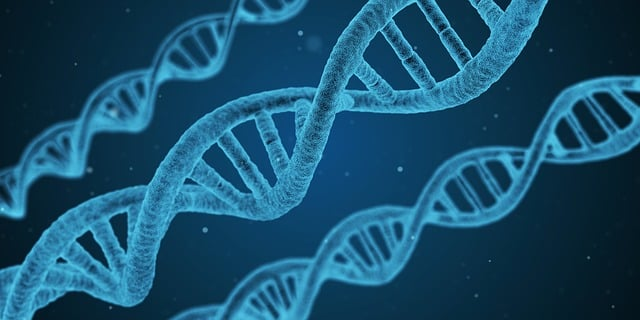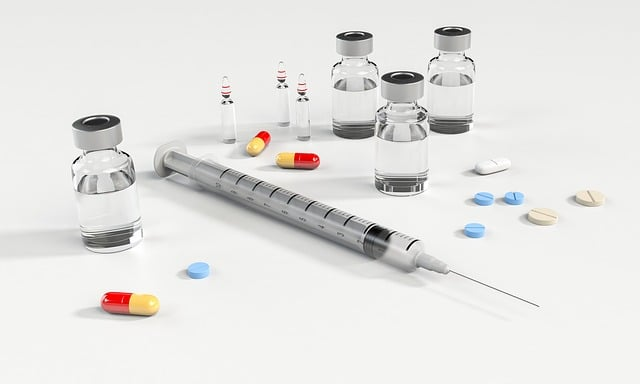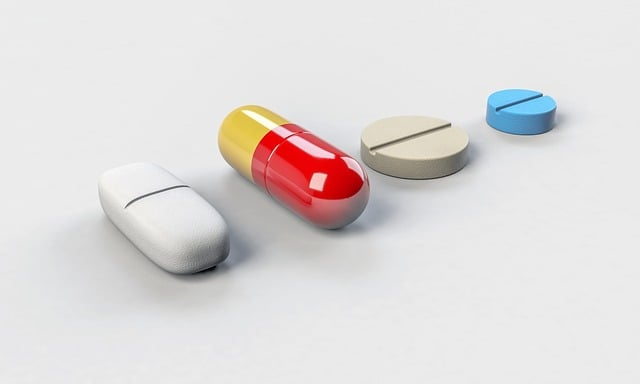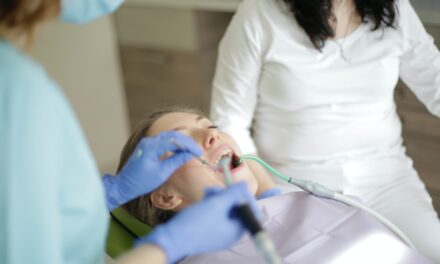Imagine a hormone that not only plays a crucial role in growth and development, but also holds the key to improved physical performance, mental well-being, and even anti-aging effects. This magical substance is none other than human growth hormone (HGH), produced naturally by the pituitary gland. As intriguing as it sounds, HGH therapy isn’t a one-size-fits-all solution. In this comprehensive blog post, we’ll explore the world of HGH, its benefits, risks, and the steps to access HGH UK treatment.
| Thumbnails | Products | Price |
|---|---|---|
| Evotropin HGH 100iu – Evotech | £179.00 | |
| IGF1-DES 1-3 – Pharmaqo Labs | £34.90 | |
| IGF1-DES 1-3 – Pharmaqo Labs [Exp. Date 10.2023] | £18.00 | |
| IGF1-LR3 – Pharmaqo Labs | £179.00 | |
| IGF1-LR3 – Pharmaqo Labs [Exp. Date 12.2023] | £89.50 | |
| MGF – Pharmaqo Labs | Original price was: £40.00.£34.90Current price is: £34.90. | |
| Qomatropin HGH 100iu – Pharmaqo Labs | £179.00 | |
| Qomatropin HGH 100iu – Pharmaqo Labs (Worldwide Delivery) | £179.00 |
Short Summary
- HGH is an important hormone produced by the pituitary gland that plays a vital role in regulating physical development, metabolism, muscle mass and bone density.
- Diagnostic procedures such as laboratory testing are used to diagnose HGH deficiency and provide an accurate course of treatment.
- When properly monitored with medical supervision, HGH therapy offers individuals potential benefits including improved exercise capacity and mental well-being while reducing associated risks.
Understanding HGH and Its Role in the Body
Human growth hormone (HGH) is a naturally occurring hormone, produced by the pituitary gland, which plays a significant role in various aspects of our physical development. From growth and development, metabolism regulation, to muscle mass and bone density, HGH is an essential component of our overall well-being.
In the following sections, we’ll delve deeper into the specific functions of HGH and the importance of maintaining healthy levels throughout our lives.
Growth and development
The role of HGH in growth and development cannot be understated. HGH deficiency can lead to a wide range of effects, including alterations in body composition, bone density, lipid metabolism, cardiovascular function, physical well-being, sleep patterns, and immune system function.
On the other hand, adequate HGH levels can facilitate muscle tissue repair, increase muscle mass, and even enhance exercise capacity. It’s clear that HGH plays a critical role in maintaining a healthy balance in our bodies, ensuring optimal growth and development.
Metabolism regulation
HGH also plays a crucial role in regulating our metabolism. It interacts with insulin to regulate carbohydrate and lipid metabolism and stimulates triglyceride breakdown and oxidation in adipocytes, which promotes fat utilization.
In other words, HGH helps our bodies burn fat more efficiently, making it an essential component in weight loss and physical activity. By maintaining healthy HGH levels, we can support a well-functioning metabolism, lose weight, and enjoy the benefits of a lean and energetic physique.
Muscle mass and bone density
HGH is vital for maintaining muscle mass and bone density, two key factors that contribute to our overall strength and physical prowess. By facilitating the synthesis of collagen, a structural component of muscles, HGH supports the development and maintenance of strong muscles.
Additionally, HGH exerts a considerable influence on bone density, ensuring that our bones remain strong and resilient throughout our lives. In essence, healthy HGH levels are crucial for maintaining a powerful and robust physique.
Hgh cycle and dosage for beginners and advanced users

When it comes to HGH cycle and dosage, the requirements may vary depending on other medical conditions and the individual’s goals and experience level. For bodybuilding purposes, a dosage of 4-6 IU per day for 3-6 months is recommended, whereas for anti-aging purposes, a prolonged cycle of 2-3 IU per day for 6+ months is suggested.
It’s crucial to consult with a medical professional before beginning any HGH regimen to ensure the proper dosage and cycle duration for your specific needs.
For first-time HGH users, PharmaQo Qomatropin 100iu are an affordable high-quality option to start with.
HGH improve effects of anabolic steroids cycle?

HGH can enhance the efficacy of anabolic steroids by enhancing the body’s ability to synthesize proteins, which are the fundamental components of muscle. Additionally, HGH can also reduce the adverse effects of anabolic steroids, such as water retention and gynecomastia.
However, combining HGH and anabolic steroids could lead to an increased risk of liver damage, cardiovascular disease, and gynecomastia. It’s essential to consult with a qualified medical professional before combining HGH and anabolic steroids to ensure a safe and effective approach.
Why bodybuilders and gym users use hgh?

Bodybuilders and gym users utilize HGH to promote muscle growth and reduce fat. The dosages of HGH utilized by these individuals typically vary depending on the purpose, such as bodybuilding or anti-aging.
While there are potential risks and side effects associated with HGH use, the benefits of increased muscle mass, enhanced metabolism, and fat reduction can be attractive to those seeking to improve their physical performance and appearance.
There are always quality HGH products on sale through trusted sources if you know where to look, especially in America. Right now, HGH sale USA making it a great entry point for new HGH users.
Hgh for women?

HGH therapy can provide a range of benefits for women as well. Women who undergo HGH treatment can expect to observe a range of physical, mental, and emotional improvements over time. The recommended dosage for women is typically 2-3 IU per day for a period of 6 months or longer.
By ensuring proper dosage and monitoring, women can experience the numerous benefits of HGH therapy, including increased muscle mass, improved bone density, improved metabolic regulation, enhanced mental health, and anti-aging effects.
HGH Deficiency: Causes, Symptoms, and Diagnosis

HGH deficiency is a condition in which the pituitary gland does not secrete sufficient growth hormone, leading to various physical and mental health issues. Causes of HGH deficiency can range from genetic factors to brain trauma and pituitary gland tumours.
Identifying the symptoms, such as fatigue, weight gain, and decreased muscle mass, is essential for a timely diagnosis. In the following sections, we’ll discuss common causes, symptoms, and diagnostic procedures related to HGH deficiency.
Common causes
HGH deficiency can be caused by various factors, including traumatic head injuries, infections, radiation treatments, damage to the pituitary gland or hypothalamus, and genetic abnormalities. Some common causes in adults are benign tumours on the pituitary gland or the treatment of these tumours via surgery or radiotherapy.
Understanding the potential causes of HGH deficiency is crucial in determining the appropriate course of action and treatment plan.
Recognising the symptoms
Identifying the symptoms of HGH deficiency is essential for early intervention and treatment. Some common symptoms include insomnia, daytime fatigue, difficulty in muscle building, elevated cholesterol levels, reduced bone density, and a propensity to accumulate fat in the abdominal area.
By recognizing these signs, individuals can seek medical advice and undergo the necessary diagnostic procedures to determine the presence of HGH deficiency and take appropriate action.
Diagnostic procedures
Diagnosing HGH deficiency involves a combination of laboratory testing and a physical examination. Blood tests are used to measure the levels of growth hormone in the body, while insulin-like growth factor 1 (IGF-I) and IGF binding measurements are also taken into account.
The glucagon stimulation test is the most commonly used diagnostic test for the diagnosis of GH deficiency. By undergoing these diagnostic procedures, individuals can receive an accurate diagnosis and begin the appropriate course of treatment.
The Advantages of HGH Therapy

HGH therapy can provide a range of benefits for those suffering from HGH deficiency, ageing or seeking to improve their physical and mental health. From physical improvements such as increased muscle mass and bone density to mental well-being and potential anti-aging effects, HGH therapy offers a variety of advantages.
In the following sections, we’ll delve deeper into the specific benefits of HGH therapy and discuss the different aspects of this treatment option.
Physical improvements

HGH therapy has been linked to numerous physical improvements, such as increased exercise capacity, improved body composition, increased muscle mass, and improved bone density. These benefits can contribute to a stronger, leaner, and more vigorous physique, enabling individuals to perform at their best and enjoy an enhanced quality of life.
Whether for athletic prowess or simply maintaining a healthy and active lifestyle, the physical improvements offered by HGH therapy are undeniable.
Mental well-being
The mental benefits of HGH therapy are equally impressive. It has been associated with improved mood, improved cognition, and increased mental speed.
Furthermore, HGH therapy has been shown to enhance cognitive function, provide neuroprotection, and stimulate neurogenesis. By supporting mental well-being and vitality, HGH therapy can help individuals overcome challenges, stay focused, and maintain a positive outlook on life.
Anti-aging effects
The potential anti-aging effects of HGH therapy are a topic of great interest. It has been shown to enhance skin elasticity, reduce the appearance of wrinkles, increase muscle mass, improve bone density and strength, and promote healthy cholesterol levels.
While the long-term effects of HGH therapy are still under research, these potential benefits may contribute to a more youthful and vibrant appearance.
HGH Therapy in the UK: Accessing Treatment

Gaining access to HGH therapy in the UK involves a few crucial steps, such as finding a qualified practitioner, obtaining a prescription, and considering the associated costs.
In the following sections, we’ll discuss these steps in more detail and provide guidance on how to navigate the process of accessing HGH therapy in the UK.
Finding a qualified practitioner
Locating a competent practitioner for HGH hormone replacement therapy here in the UK is of utmost importance. Professional organizations such as The Society for Endocrinology can provide assistance in finding a qualified practitioner, or you can search for clinics that offer HGH replacement therapy, such as The Hamlet Clinic in London.
By ensuring that you receive treatment from a certified medical professional, you can be confident in the safety and effectiveness of your HGH therapy.
Obtaining a prescription
Obtaining a prescription for HGH therapy in the UK can be achieved through a private clinic or a specialist doctor following a thorough medical consultation and examination. A prescription is only issued if there is a legitimate medical requirement for the growth hormone.
This process helps to ensure that HGH therapy is appropriate and safe for the individual seeking treatment.
Cost considerations
The cost of HGH therapy in the UK may vary depending on factors such as medical conditions such as the type of therapy, dosage, duration of treatment, and the clinic or hospital providing the treatment. It’s essential to be aware of the potential costs associated with HGH therapy and to weigh these against the potential benefits before committing to treatment.
By considering the various cost factors, individuals can make an informed decision about whether HGH therapy is the right choice for them.
Risks and Side Effects of HGH Therapy

While HGH therapy offers numerous benefits, it’s essential to be aware of the potential risks and side effects associated with treatment. Common side effects include fluid retention, joint pain, and carpal tunnel syndrome, while long-term risks are still under research.
In the following sections, we’ll discuss the risks and side effects of HGH therapy in more detail and provide guidance on how to monitor and adjust treatment to minimize potential issues.
Common side effects
Some common side effects of HGH therapy include back pain, chills, cough or cough producing mucus, constipation, depressed mood, diarrhea, difficulty in breathing, difficulty in movement, swelling of the arms and legs from fluid retention, muscle and joint pain, aches, and stiffness, allergic reaction, including swelling at the injection site, rash, or hives, hip, knee, or other joint pain, headache, progression of spine curvature in patients with scoliosis, and temporary increase in blood sugar levels, which stops when the GH treatment stops.
By being aware of these potential side effects, individuals can take the necessary precautions and work closely with their medical professional to manage and minimize any issues that may arise during treatment.
Long-term risks
Potential long-term risks associated with HGH therapy include glucose intolerance, type 2 diabetes mellitus, edema, joint pains and arthritis, hypertension, sleep disorders, and an increased risk of cancer.
It’s crucial for individuals considering HGH therapy to weigh the potential benefits against these long-term risks and to work closely with their healthcare provider to monitor and manage any potential issues that may arise throughout the course of treatment.
Monitoring and adjusting treatment
In order to minimize the likelihood of undesired side effects and ensure optimal results, personalized HGH replacement therapy from a certified medical professional and lab testing prior to taking HGH is essential for monitoring and adjusting treatment.
This may involve regular check-ups, blood tests, and evaluations of medical history to track hormone levels and potential side effects. By maintaining open communication with their healthcare provider and closely monitoring their progress, individuals can enjoy the benefits of HGH therapy while minimizing potential risks.
Alternatives to HGH Injections: Supplements and Lifestyle Changes

For those who may be hesitant about HGH injections, there are alternative options to consider. Certain dietary supplements, such as HyperGH 14x and HBULK, claim to raise HGH levels, while lifestyle modifications, such as reducing body fat, intermittent fasting, and ingesting foods high in tryptophan, like eggs and milk, may also contribute to increased HGH levels.
In the following sections, we’ll explore these alternatives in more detail and discuss the potential benefits and drawbacks of each option.
HGH supplements

HGH supplements, such as HyperGH 14x and HBULK, claim to offer similar benefits to HGH injections, including increased muscle mass, enhanced metabolism, and fat reduction. However, it’s important to note that HGH injections are generally considered to be more effective than HGH supplements.
When considering HGH supplements, it’s crucial to weigh the potential benefits against the possible risks and to consult with a healthcare professional before beginning any new supplement regimen.
Lifestyle changes

In addition to supplements, certain lifestyle changes can also help boost HGH levels naturally. Reducing body fat, engaging in regular physical activity, obtaining sufficient sleep, and consuming a balanced diet rich in tryptophan-containing foods like eggs and milk may all contribute to increased HGH production.
By incorporating these lifestyle modifications, individuals can support their body’s natural HGH production and enjoy the associated benefits without the need for injections.
Exercise and nutrition

Exercise and nutrition are essential components of HGH production. High-intensity exercise, resistance training, and low-intensity activities such as walking and swimming can facilitate the increase of natural HGH production. Additionally, consuming a balanced diet with a variety of fruits, vegetables, and lean proteins can help ensure that the body has the necessary nutrients to produce HGH.
By maintaining a healthy lifestyle that includes regular exercise and proper nutrition, individuals can support their body’s natural production of hormones and HGH and enjoy the associated benefits.
Summary
To sum up, human growth hormone (HGH) is a powerful hormone with significant implications for our growth, development, metabolism, muscle mass, and bone density. While HGH therapy can provide numerous benefits, it’s crucial to be aware of the potential risks and side effects associated with treatment. By consulting with a medical professional, obtaining a prescription, considering cost factors, and exploring alternatives to injections, individuals can make an informed decision about whether HGH therapy is the right choice for them. Remember, the key to unlocking the potential of HGH therapy lies in responsible and informed decision-making, ensuring a healthy and vibrant future.
Frequently Asked Questions
How much does HGH cost in the UK?
The average cost of Growth Hormone (GH) therapy in the UK is approximately £3350 per patient per year. This cost does decrease with age since GH requirements also decrease as people get older.
Thus, it is important to consider age when looking into the cost of GH therapy in the UK.
Can you legally use HGH?
Overall, HGH can only be legally used with a prescription to treat an approved condition. Any use of HGH without a prescription or for any other purpose than what has been approved by the FDA is illegal.
Does HGH help adults grow?
In conclusion, HGH does not help adults grow in the sense of increasing their height. It may, however, have other beneficial effects on the human body, such as decreasing fat mass and improving lean muscle mass.
Who qualifies for growth hormone?
Growth hormone therapy is recommended for children with confirmed growth hormone deficiency, Turner Syndrome, and Prader-Willi syndrome. Diagnosis must be established through tests and other assessments prescribed by a health care professional in order to qualify for growth hormone treatment.
What does taking human growth hormone do?
Taking human growth hormone can lead to increased growth in children and adolescents, helping them reach their maximum height. Additionally, it can also help adults maintain body composition, muscle and bone growth, sugar and fat metabolism growth hormone production, and even heart function.
Read more about
- A Historical Overview of Anabolic steroids Use in Professional Leagues and Olympic Competitions
- The history and development of anabolic steroids
- Legal Status and Regulation of Anabolic Steroids in the United Kingdom and Worldwide
Author

Dr. Aditya K. Sharma
I am Dr. Aditya Sharma, a dedicated urologist specializing in kidney transplants and advanced urological surgeries. My career is driven by a passion for delivering exceptional care and pioneering surgical techniques. Outside the operating room, I have a keen interest in studying the effects of anabolic steroids on bodybuilding, seeking to understand the fine line between enhancing performance and maintaining health.






